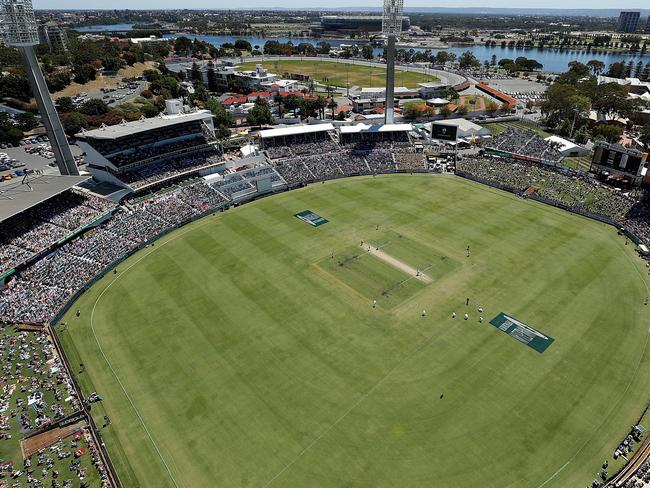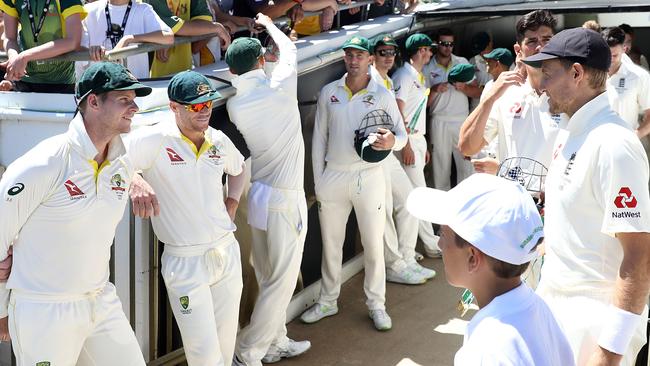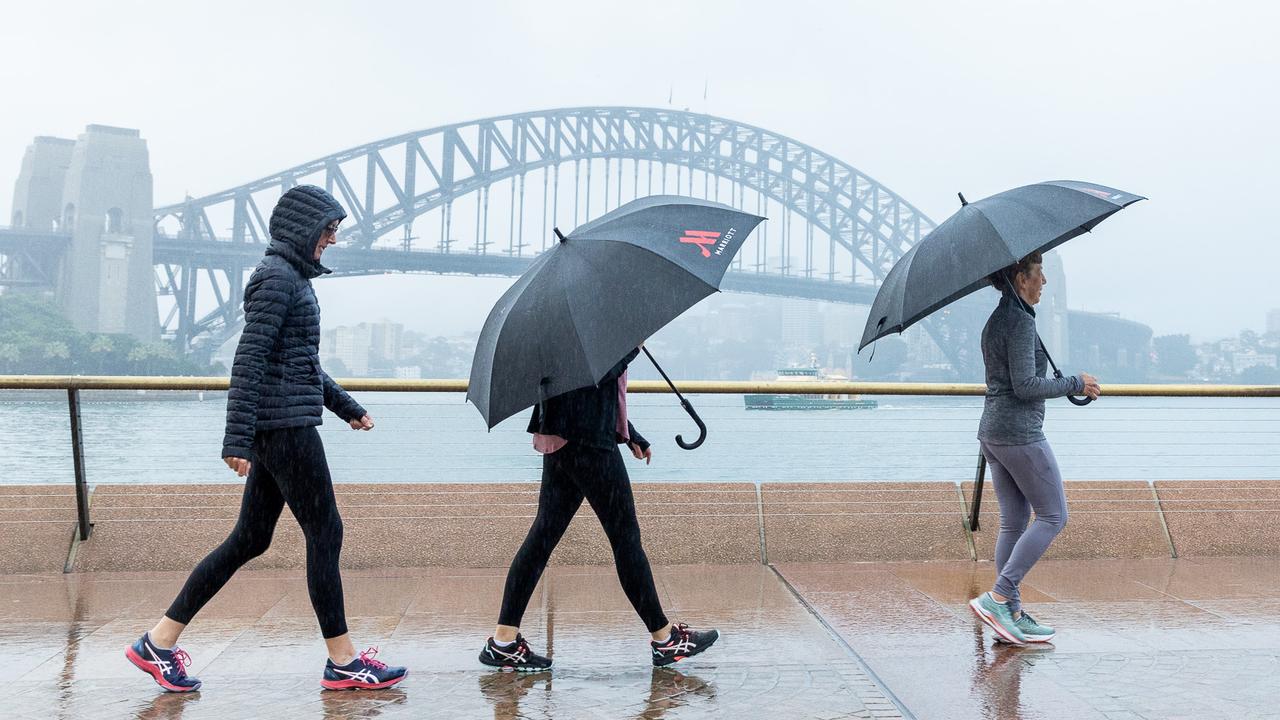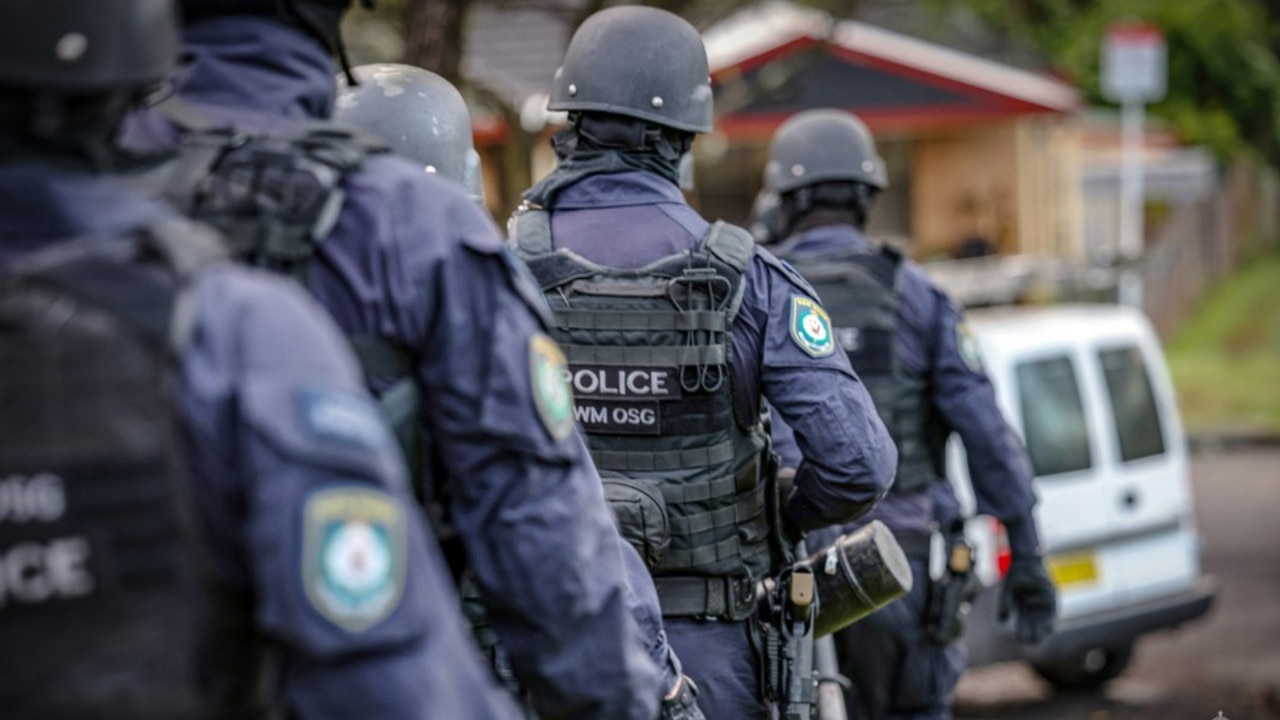Cricket-fixing scare: Scrutiny also on Big Bash tournament
CRICKET authorities are investigating six separate match-fixing cases as explosive claims emerged criminal syndicates have infiltrated Australia’s summer showpieces — the Ashes and the Big Bash.
NSW
Don't miss out on the headlines from NSW. Followed categories will be added to My News.
CRICKET authorities are currently investigating six separate match-fixing cases as explosive claims emerged criminal syndicates have infiltrated Australia’s summer showpieces — the Ashes and the Big Bash.
Two alleged match-fixers were caught on camera in a sting by The Sun newspaper claiming they could arrange spot fixes to win millions of dollars in bets in the Perth Test which began yesterday and the Big Bash tournament which starts next week.
They claimed they were working with an Australian known as The Silent Man, a former Australian cricketer and an administrator.
Cricket Australia denied the claims but the bombshell coincided with the revelation the International Cricket Council’s integrity unit is investigating secret approaches to three international captains in the past ten weeks.
The captains of Pakistan and Zimbabwe as well as the skipper of a third unnamed international side have all officially reported approaches from match-fixers, and the plan is for ICC investigations to result in charges.
It can also be revealed cricket investigators have been handed brand new powers to demand the phone records of any players, staff or administrators who are suspected to have any involvement or knowledge of corrupt activity.
Investigators have warned they can even bring back to life phone evidence that has been destroyed using laser technology.

Cricket Australia defended the integrity of its players and administrators in the wake of The Sun’s video footage of two Indian fixers — former Indian state cricketer Sobers Joban and Delhi bookmaker Priyank Saxena — claiming they could rig periods of play during the WACA Test.
Joban said he could get players to follow scripts in return for a payment of $245,000, which would be laundered through agents in South Africa.
Once the money was cleared players would give prearranged signals such as replacing a helmet or batting gloves to show the fix was on.
It would allow the fixers to predict things such as how many runs would be scored in an innings and when a wicket would fall.
“Before match. I will tell you this over, this runs and then you have to put all the bets on that over,” he said.
“I will give you work in Ashes Test. Session runs. Maybe day one, two, three. We have two session work, one session costs 60 lakh rupees ($120,000), two sessions 120 lakh rupees ($240,000).”
The two men also claimed they had fixed games in the Big Bash and Indian Premier League. In one video clip they claimed: “You want to see something magic in the Big Bash? Big Bash we can do, winning and loss.”

Cricket Australia chief executive James Sutherland immediately called the head of the International Cricket Council’s anti-corruption unit Alex Marshall in the UK to discuss the allegations.
Afterwards he said none of Australia’s players or officials had been contacted by the fixers or was under any suspicion.
“There’s no substance to these allegations or justification to suspect that this Test match or indeed the Ashes series as a whole is subject to corrupt activities,” Sutherland said.
“My comments today are based on a briefing I’ve had from Alex Marshall and I don’t think for one moment anyone should believe that we’re complacent.”
He said an investigation into the allegations was ongoing. Mr Marshall met with the Australian Federal Police and Australian cricket officials earlier this month as part of a global information sharing tour.

“Alex Marshall will, with his team, continue to investigate this matter. Obviously if there’s anything credible it will be a deep and forensic investigation.”
Australian captain Steve Smith said he knew nothing about any approaches by matchfixers.
“There’s no tolerance and no place for that in our game. As far as I know there’s nothing that has been going on or anything like that.”
No English players were named by The Sun when it handed over its dossier of evidence to the ICC.
Marshall was in Australia last week to meet with Australian Federal Police and Cricket Australia officials, however those meetings had absolutely nothing to do with The Sun report or any live investigations.
Under new powers, the ICC can demand phones from any persons of interest and if consent isn’t given, suspects can be banned for up to two years for failure to comply.


